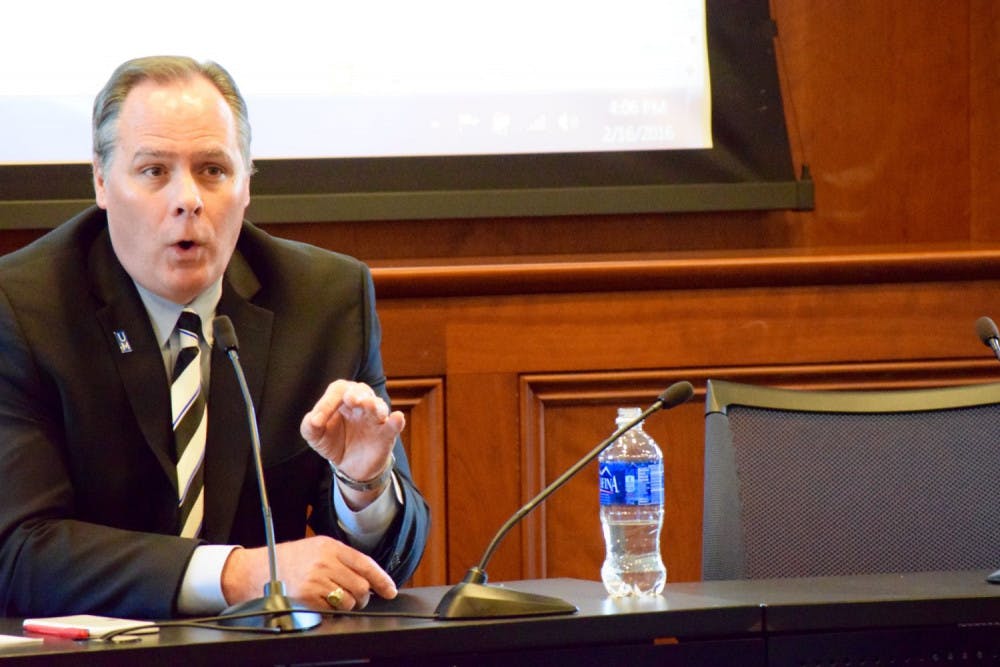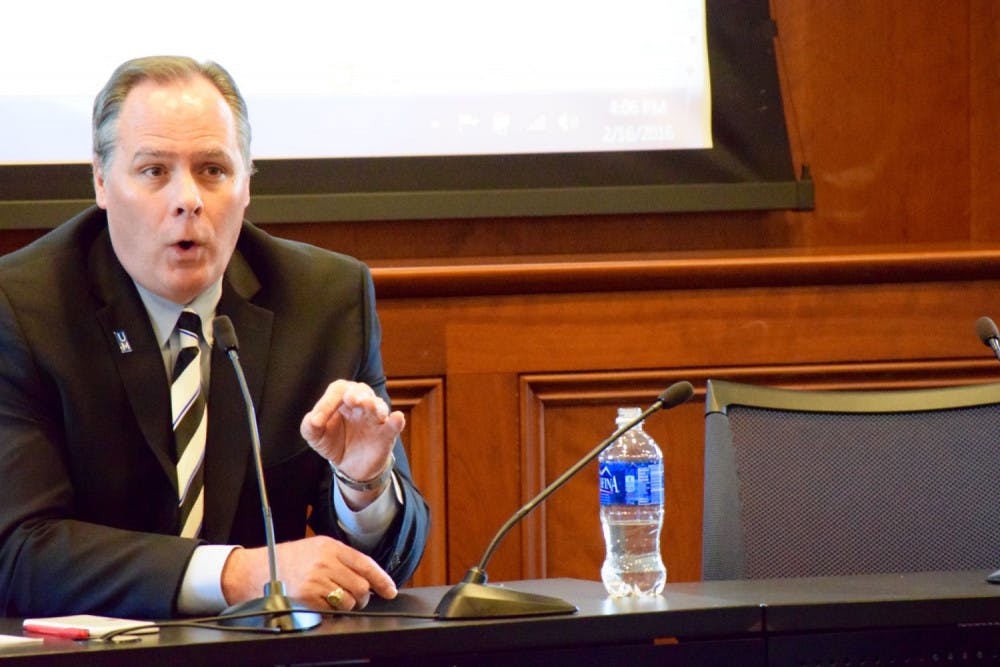
The University of Memphis is likely to split from the Tennessee Board of Regents and form its own governing body. Soon, however the student representative on this new board may not have voting privilege. Rudd said he could bring up the issue of the student member having voting privileges. “I have one voice and one vote,” he said. “I am happy to raise that issue and explore it.”
Student and staff members will likely not get a voting seat in the University of Memphis’ new governing board.
These are the most recent developments in the FOCUS Act, a state bill that will dissolve the Tennessee Board of Regents and allow the U of M to self-govern.
The soon-to-be created U of M governing board would have sweeping powers such as the ability to raise or lower tuition and employee pay without state approval.Â
The Tennessee legislature rejected a proposal that would have given staff members a representative in the soon-to-be created U of M board.
Student government will also likely not get a voice in the new governing board either. While the FOCUS Act allows for a student to be a member, the state legislature rejected amendments that would have allowed the student to vote on the new board.
The student senate voted Thursday to make the U of M student president a voting member of the board.
However, student government does not have the power to create a voting seat or appoint anyone on the new board.
Faculty, however, will get a voting seat on the new board.
Even though the Tennessee legislature turned down staff and student requests, M. David Rudd, U of M president, said that the new governing board will continue to be molded even after it is created. Â
“Please recognize that we will continue to discuss and address the student and staff requests after our new governing board is in place,†Rudd said in an email to U of M students and employees Thursday.
In a follow up email, the university president said that while the new board is being formed a temporary task force will “facilitate the move to an independent governing board,†Rudd said.
Melanie Murry, U of M legal counsel, and David Zettergren, vice president for business and finance, are the heads of this taskforce.
“In the coming weeks, I’ll be reaching out to the faculty and staff senates, along with the Student Government Association, to discuss possible members,†Rudd said in the second email. “My office will be scheduling a continuing series of breakfast meetings with each of these groups to review issues, concerns and ideas for shaping the best pathway forward. Please don’t hesitate to share your thoughts.â€
However, the appointments concern some including Ronald Patterson, a heating, ventilation, and air conditioning mechanic at the U of M.
“If we are moving to a self governing establishment, shouldn't the entire community on campus elect these officials?†Patterson said in an email to Rudd and every
Patterson said he didn’t want to stir commotion, but that he was “concerned with how this move will benefit the campus as a whole. I love this campus and Have for most of my life being born and raised here but as many of my fellow employees may agree to, we are quiet worried about the future of this great university,†he said in the email.
Rudd said he agreed to Patterson in an email response.
“The purpose of these meetings is to explore how best to do that very thing, identify representation for the transition task force,†Rudd said.
The university also set up a special FOCUS Act page on their website.






